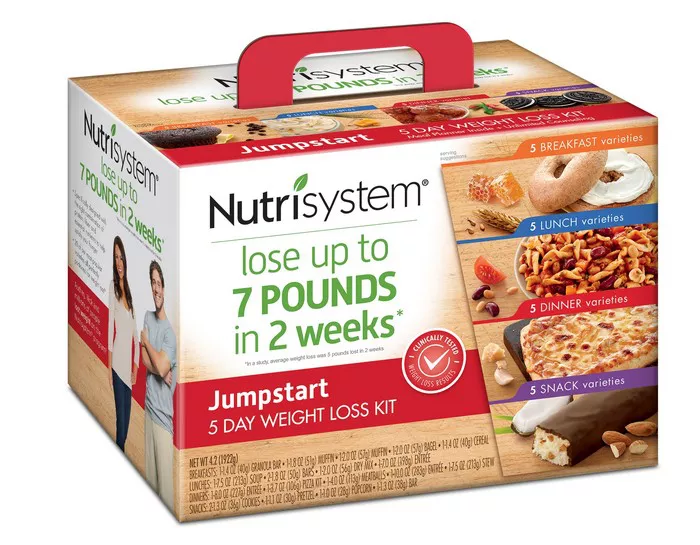Embarking on a weight loss journey while breastfeeding requires careful consideration of both your own health and that of your baby. Many new mothers are eager to shed postpartum pounds, but they’re rightfully concerned about how dieting may affect their milk supply and the nutritional needs of their nursing infant. Nutrisystem, a popular commercial weight loss program, is often a topic of interest for breastfeeding moms seeking a convenient and structured approach to weight management. In this article, we’ll explore the compatibility of Nutrisystem with breastfeeding and provide guidance for mothers considering this option.
Understanding Nutrisystem: A Brief Overview
Before delving into its compatibility with breastfeeding, let’s first understand what Nutrisystem entails. Nutrisystem is a commercial weight loss program that offers prepackaged meals and snacks designed to facilitate portion control and calorie restriction. The program typically involves consuming a combination of Nutrisystem-provided meals and grocery items supplemented with fresh fruits and vegetables. It aims to promote weight loss through calorie deficit while providing essential nutrients to support overall health.
Considerations for Breastfeeding Mothers
Breastfeeding mothers have unique nutritional needs due to the demands of lactation. It’s crucial to ensure an adequate intake of calories, nutrients, and fluids to support milk production and maintain maternal health. When considering a weight loss program like Nutrisystem, several factors must be taken into account:
1. Caloric Intake: Nutrisystem’s meal plans are designed to create a calorie deficit for weight loss. However, breastfeeding women require additional calories to sustain milk production, typically an extra 300 to 500 calories per day compared to pre-pregnancy levels. Restricting calories too drastically may compromise milk supply and maternal energy levels.
2. Nutrient Composition: The nutritional composition of the meals provided by Nutrisystem is another important consideration. Breastfeeding mothers need adequate protein, healthy fats, vitamins, and minerals to support both their own health and that of their baby. A balanced diet rich in nutrients is essential for optimal breastfeeding outcomes.
3. Hydration: Proper hydration is essential for breastfeeding mothers to maintain milk volume and prevent dehydration. While Nutrisystem emphasizes drinking plenty of water, breastfeeding women may need even more fluids to support lactation.
4. Impact on Milk Supply: Any significant changes in diet or caloric intake have the potential to affect milk supply. Some breastfeeding mothers may experience a decrease in milk production if they restrict calories too severely or if their nutritional intake is imbalanced.
Is Nutrisystem Safe While Breastfeeding?
The safety of following the Nutrisystem program while breastfeeding largely depends on individual circumstances. While some breastfeeding mothers may successfully incorporate Nutrisystem into their weight loss journey without compromising milk supply or nutritional adequacy, others may encounter challenges. Here are some factors to consider:
1. Consultation with Healthcare Provider: Before starting any weight loss program, including Nutrisystem, breastfeeding mothers should consult with their healthcare provider or a registered dietitian. A healthcare professional can provide personalized guidance based on factors such as maternal health, nutritional needs, and the baby’s growth and development.
2. Monitoring Milk Supply and Baby’s Growth: Breastfeeding mothers following Nutrisystem should closely monitor their milk supply and their baby’s growth and development. Any signs of decreased milk production or inadequate weight gain in the infant should prompt a reevaluation of the diet plan and consultation with a healthcare provider.
3. Adaptations and Modifications: It may be necessary to adapt or modify the Nutrisystem program to better suit the needs of breastfeeding mothers. This could involve adjusting meal plans to ensure adequate caloric intake, incorporating additional snacks or supplements as needed, and prioritizing nutrient-dense foods.
4. Gradual Approach: Instead of immediately diving into a strict Nutrisystem regimen, breastfeeding mothers may opt for a more gradual approach to weight loss. Gradually reducing calorie intake while prioritizing nutrient-rich foods can help minimize the risk of compromising milk supply.
5. Self-Care and Flexibility: Breastfeeding mothers should prioritize self-care and be flexible with their weight loss goals. The postpartum period is a time of significant physical and emotional changes, and it’s essential to listen to your body’s signals and prioritize overall well-being.
Conclusion
In conclusion, Nutrisystem can be compatible with breastfeeding under the right circumstances, but careful consideration and monitoring are essential. Breastfeeding mothers should prioritize maintaining a balanced diet that meets their increased nutritional needs while supporting milk production and maternal health. Consulting with a healthcare provider or a registered dietitian is paramount to ensure a safe and successful weight loss journey while breastfeeding. By approaching weight loss with mindfulness, self-care, and informed decision-making, breastfeeding mothers can achieve their health goals while nurturing their baby’s growth and development.


